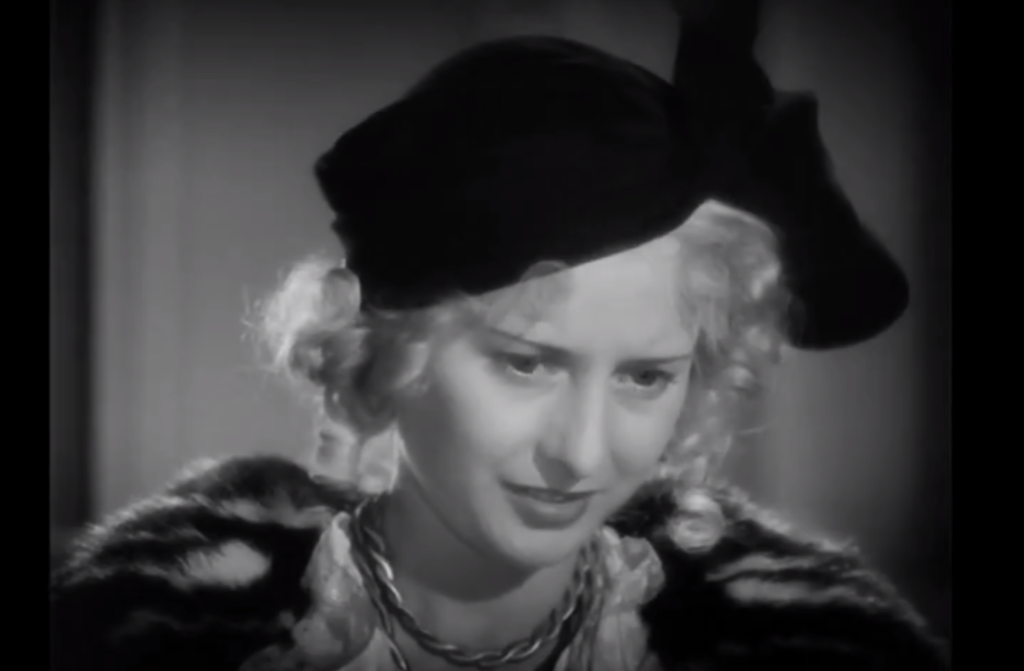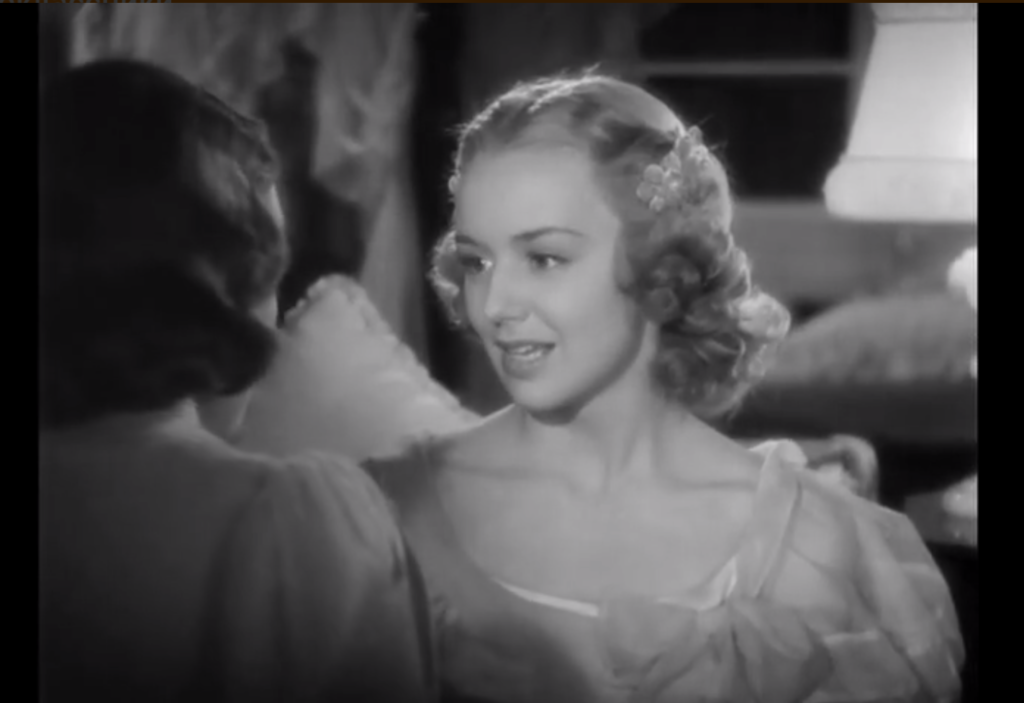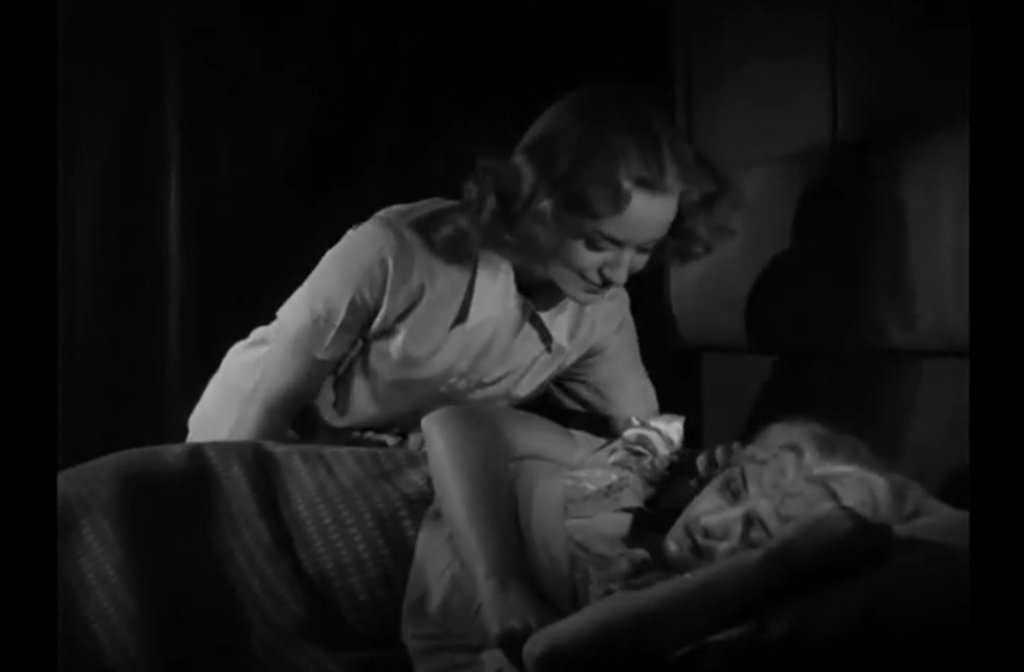|

Synopsis:
A working class woman (Barbara Stanwyck) marries an executive (John Boles) and has a child, but the couple find themselves drifting apart and soon live separate lives. As their daughter (Anne Shirley) grows older, she becomes more aware of her mother’s lack of social refinement — and when Stanwyck realizes it’s best for Shirley to live with Boles and his kind socialite girlfriend (Barbara O’Neil), she makes the ultimate maternal sacrifice.
|
|
Genres, Themes, Actors, and Directors:
- Alan Hale Films
- Anne Shirley Films
- Barbara Stanwyck Films
- Class Relations
- Cross-Class Romance
- King Vidor Films
- Single Mothers
- Social Climber
- Suffering Mothers
Response to Peary’s Review:
Peary writes that this “prototypical soap opera” — based on a novel by Olive Higgins Prouty — “was one of the first to advance the form’s most important tenet: whatever a woman’s faults, she will be a devoted, loving, sacrificing mother.” (If only this fantasy were remotely true…) He notes that Stanwyck’s Stella — “a smalltown girl who marries above her class” and “is well-meaning but restless for the wild life” — is “not upset about separating from Boles” (he points out “this is one of the screen’s first amiable divorces”); however, “she can’t bear not being with her teenage daughter… who gives meaning to her otherwise drab life.” Peary writes that “thematically this picture, is, of course, dated, but it’s still worth watching because of its classic status, the strong and sympathetic performances by Stanwyck and Shirley, and director King Vidor’s interesting portrait of smalltown America. Even considering the snobs who naively make fun of Stella, this film contains some of the nicest people…” I’m in agreement with Peary’s assessment. Stanwyck brings pathos and nuance to a challenging role: we’re willing to believe in her character’s story given that no easy answers are presented or accepted. It is indeed refreshing to see how nicely the major players (though certainly not all of society) treat one another other. Stanwyck and Shirley’s dilemma becomes simply an old-fashioned (albeit class-soaked) take on the recurring challenge of custodial privileges, which haven’t disappeared.
Redeeming Qualities and Moments:
- Barbara Stanwyck as Stella Dallas

- Fine supporting performances

- Rudolph Mate’s cinematography

Must See?
Yes, for Stanwyck’s performance, and as a classic soaper.
Categories
(Listed in 1001 Movies You Must See Before You Die)
Links:
|




2 thoughts on “Stella Dallas (1937)”
Not must-see.
‘Stella Dallas’ is among the most pathetic and annoying of on-screen representations of a woman. To view her as “well-meaning” is to simply mis-read her.
From the get-go, she is opportunistic and self-serving. Whatever genuine feelings she may have for other people are minimal and fleeting. Here is a woman who is really not on to herself.
(I found myself turning on her when she I realized she hates books. Yikes!)
Once she has a child, she as much as says she no longer has any emotional need for men. (Or women either; she cultivates no women friends.) The claim is that she is throwing all of her love into her child – but there’s evidence that that’s because Laurel was an easy baby. (Who wouldn’t love a kid who, at age 2, wipes up after herself when she makes a mess? It’s doubtful Stella would be as drawn to Laurel had she been at all difficult.)
All sympathy goes to the husband (Boles), and even to Stella’s alcoholic buddy (Hale) who – she admits – Stella only keeps around because he amuses her (and, as we discover, because she can use him in an unfeeling, selfish manner). Not only does she throw away a husband who sincerely loves her – but she makes a life out of spending an immense amount of his money. She makes no attempt to take care of herself by herself in any way.
The film completely stacks the deck against Stella – until the last 20 minutes, when we’re to think that one over-heard critical remark makes her re-invent herself. …Maybe.
But we’re to find her ‘noble’ when her ultimate decision is to totally alienate (and basically betray) a daughter who has been fiercely loyal to her all along?
BLEH.
Very watchable, but very much a product of its time. For that I call this a once must watch.
I watched this after watching “Mildred Pierce,” and one can partially draw parallels between MP’s Veda character and Stanwyck’s portrayal of Stella Dallas. Big difference (not counting Veda’s final act) is Dallas wanted the money but couldn’t handle being “settled” or “tied down” (in other words – being a 30’s “housewife”). Veda wanted to be a socialite despite really not fitting into that part of society.
A couple of redeeming qualities to this film are the portrayal of Laurel Dallas. I also liked the kindness of the family her father married into. Helen Morrison Dallas did not fit into the stereotypical role of “high society.” There wasn’t judgment only kindness.
This was refreshing.